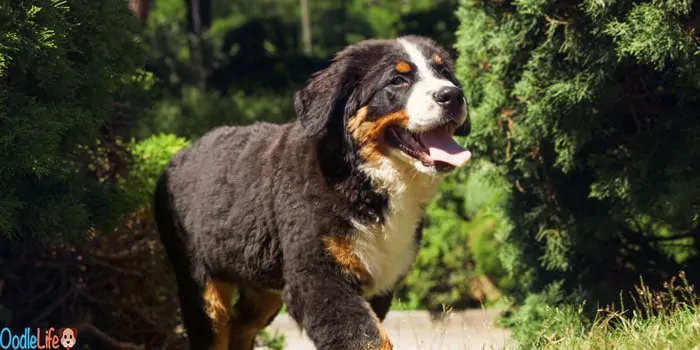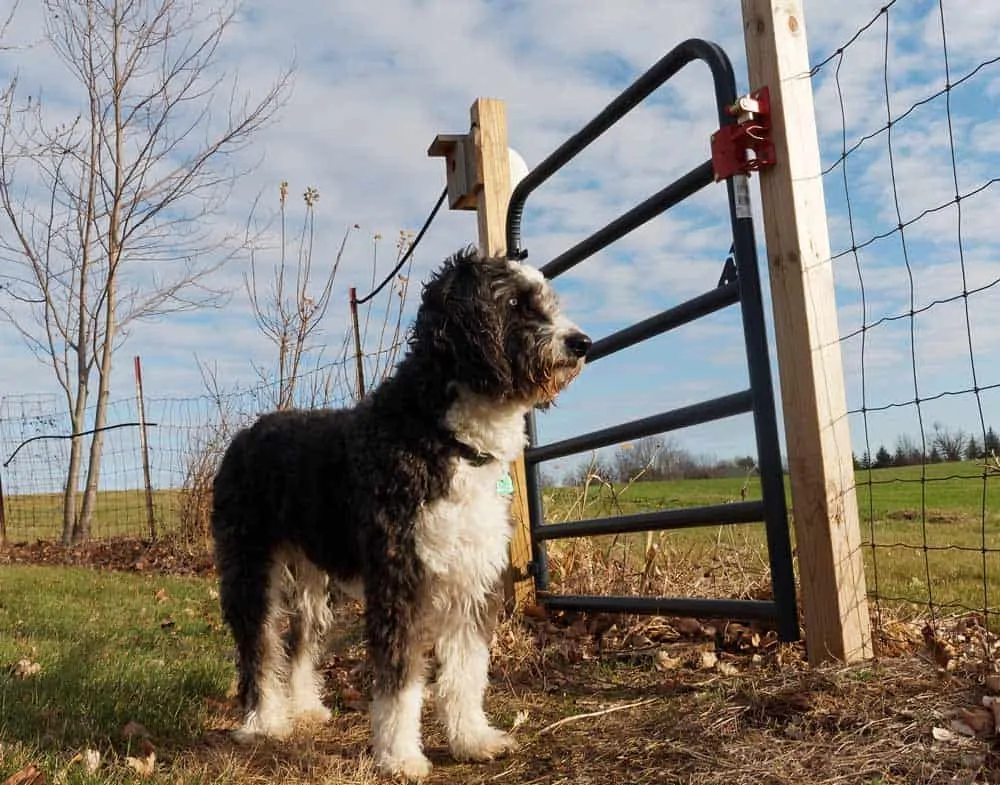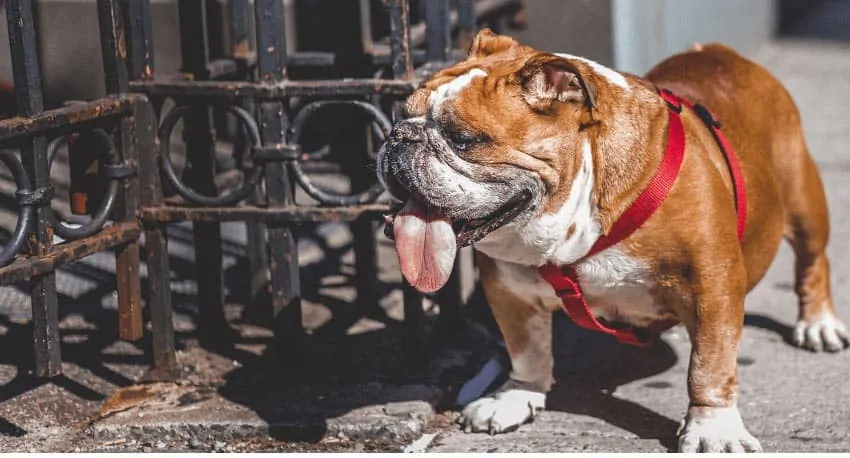When to Neuter a Dog Large Breed (Best Advice)

As pet owners, you may be thinking about how you can continuously provide your pet with the best life. The little everyday things are essential. Taking your dog for regular walks and frequent visits to the vet for health checks and vaccination.
A major life event that occurs only once needs to be carefully planned—the critical consideration of when to neuter a dog large breed specifics.
Although there have been multiple misconceptions on the risks of neutering your dog, it’s essential to know that a neutered dog is generally healthier than those that have not.
In this article, we’ll help you decide when it’s right for you to take your dog in for neutering and debunk some of the myths you have heard about neutering your pup. Instead, we’ll even discuss some of the advantages you and your dog can experience from having it fixed.
And without further ado, let’s begin.

The right time to neuter a large breed dog
So, for many first-time owners, you may be wondering when to neuter a large dog breed? Generally, it’s recommended to bring your large dog to the vet to be neutered when it reaches 9 to 15 months. This will take place after much of the growth spurts have finished.
This is per the AAHA Canine Life Stage Guidelines that notes that large breed dogs should be neutered when their growth spurt stops.
To be classified as a large breed dog, your pet will have to fit the profile of being 45 pounds over its projected adult body weight. Some dogs that fall under this category include large breeds like the recently famous Akita and classic breeds like the German Shepherd, Golden Retrievers, and even Rottweilers.
Of course, The age of neutering isn’t a decision you must make on a whim, and you can always discuss it with your vet when you wish to neuter your dog.
While you can still bring your large breed dog in for neutering when they are older, they may typically face higher risks and health complications during the surgery. Similarly, younger dogs could also be at risk for the same problems, so it’s not recommended that you bring them in for neutering before the time is right.
However, you could always consult your vet for their advice if you’re keen to neuter your dog sooner than later.
Do note that this applies mostly to large male dogs, and the age and condition of spaying large female breed dogs will differ. Your vet can often offer better bits of advice on whether your large female breed dog should be spayed. They will need to assess your dog’s individual risk profile.

Debunking myths: Why some people refuse to neuter their dogs
Unfortunately, some pet owners may still put off neutering their large breed dogs over various reasons and qualms. Here are some of the most common reasons why some people may refuse to neuter their dogs:
Neutering may be dangerous for your dog
Contrary to popular belief, neutering your large breed dog is not dangerous for them unless they have an underlying health condition. In these cases, your vet may also advise against neutering your dog.
The process of fixing a dog is generally very safe. It has been proven to be a small and successful surgery across the years. Like most surgeries, however, there may still be a degree of risk linked to neutering, so it’s always best to consult your vet when your dog should be neutered.
In case your dog is unfit for its surgery on the pre-arranged date, your vet may suggest a change of date to neuter your dog or other alternatives instead.
A neutered dog may become obese
Some dog owners may worry that neutering their dogs can lead to higher risks of obesity in their dogs. This is as neutered dogs reportedly have higher appetites and lower metabolism rates, making pet obesity a concerning situation.
However, this worry is perhaps overstated – as neutering does not directly affect your dog’s weight. Instead, your neutered dog may only be at risk of being overweight if there are no lifestyle changes.
Sure, appetite suppression and metabolism could change – but owners can reduce their feed amounts or change their diets and feeding frequency. Realistically we are in complete control of this outcome. Should you follow a strict diet plan post-surgery, your large breed dog will not be exposed to the risk of being obese. (Cut back on treats and even healthy snacks like coconut milk for dogs)
Pet owners think neutering a dog is expensive and troublesome
The cost of neutering a large breed dog may also be a driving force behind why some owners refuse to neuter their dog. To combat this issue, you may consider pet insurance policies that can cover the cost of neutering your dog.
While most pet insurance providers may exclude neutering surgeries in their generic plans, some companies may include them as an add-on service. Be sure to ask your pet insurance provider beforehand if this surgery is covered, so you can have peace of mind before neutering your dog.

They wish to breed their dogs or take them for shows
Finally, some pet owners may refuse to neuter their dogs because they look to breed their dogs or take them for shows. This is especially true for large purebred dogs, as neutered dogs are generally disqualified in many shows.
A neutered dog also means they cannot breed, which can pose problems for pet owners looking to have their large breed dogs gain offspring.
In this case, the pet owners will have to keep a closer eye on their dogs as there could be health complications arising from an unneutered dog in their later stages in life. While this is a personal choice, pet owners should always consider the pros and cons of neutering their dogs.
Should I neuter my large breed dog: Benefits of neutering your dog
Subsequently, not only is neutering safe for your dogs, but they can also gain a variety of benefits from your decision. Let’s look at some of the better-known benefits of neutering your dog when the time is right:
Neutering reduces the risk of testicular cancer in your dog
Although you cannot guarantee that your dog won’t get testicular cancer, neutering has been known to reduce your dog’s chances massively. You may also find reduced risks of other health complications like hernia or other prostatic diseases in neutered dogs. Aside from saving you the traumatic experience of having to care for an ill pet, this could vastly improve your dog’s quality of life in the long run.
Neutering limits pet overpopulation
In many cases, your decision to neuter your dog can help control the issue of pet overpopulation today.
Most pet shelters are often overwhelmed. Despite their best efforts to accommodate as many unwanted pets on the streets, it could prove difficult financially and fundamentally to continue taking pets in.
Suppose you’re thinking of keeping the accidental puppies. In that case, you may have to bear the extra costs of caring, feeding, and bringing them for vaccines or other health check-ups.
Nobody enjoys having to care for the surprise litters, and rehoming the puppies may also put a huge dent in your wallet.

Neutering helps control behavioral problems in dogs
Many male dogs are prone to various behavioral problems like being territorial or highly aggressive to other dogs.
This could be dangerous to you and your loved ones and could be stressful in the long run. On the other hand, neutering can help control these behavioral issues in large breed dogs, making it easier for you to care for your pets.
You will also face less destructive problems such as your dog’s unwanted marking (peeing) inside your home or around your neighbor’s yard.
Neutering reduces your dog’s instincts to roam
Most male dogs naturally love to roam about, especially if they can sense a companion on heat. For dog owners, not only is this dangerous as your dog may cross roads dangerously and come across reckless drivers, but you may also lose your dog if they can’t find their way home.
This, however, will not be a problem in neutered dogs, as they will have lesser instincts to roam about aimlessly to look for a mate.
Neutering earlier lowers health complications during the surgery
Although not unheard of, some pet owners may also consider neutering older dogs. While this could technically be done, neutering an older dog may cause unwanted health complications during the surgery.
It could also be risky to neuter a dog that has yet to reach its maturity stage, so it’s important to time when you want to fix your dog.
Conclusion
In conclusion, if your large pup has reached the right age between 9 to 15 months, then it may be time for you to consider neutering them. Always speak to your vet to decide if it’s the best decision for you and your dog.
Some dogs may have some underlying health conditions that deter them from being neutered.
Remember that you and your dog’s happiness is of the utmost importance, so you should make the final call on whether you’ll want to neuter your large breed dog at the end of the day.
